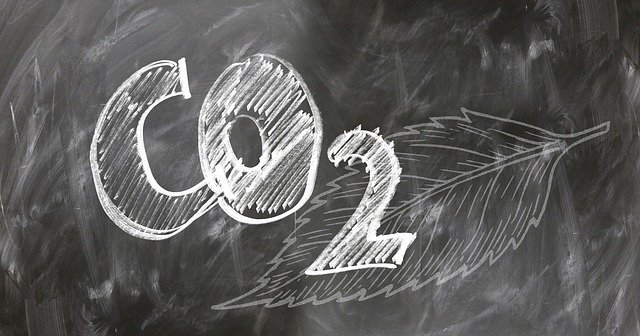
A while back, an experiment was performed where everyone in a room hyperventilated and (breathed rapidly shallowly), while one person stood in the middle of the room.
When they all stopped breathing, the person who was standing in the middle collapsed to the ground.
The same thing would happen if you were running really fast for a long time and then stopped abruptly.
Lack of oxygen can cause a person to faint because the body is not getting the energy it needs to function.
When you stop breathing, the lack of oxygen in your bloodstream causes your heart rate to slow down and eventually stop. This is called asphyxiation and can occur when someone is drowning or choking.
One important thing to note is that it can take up to five minutes for someone who is suffocating/drowning to actually die, so in this experiment, the effect of lack of oxygen comes from not getting enough.
It wouldn’t take long before you feel lightheaded and start seeing black spots when you stop breathing, so you would know pretty quickly that something was wrong.
So what would happen if the world lost oxygen for five seconds?
The answer is that pretty much everyone on Earth would die.
There are a few reasons for this.
For one, when there is no oxygen, the body can’t produce energy. This means that all of the people on Earth would lose the ability to move, think, and function.
When your brain can’t receive oxygen from breathing, it starts to shut down critical functions first.
The cells in your heart and muscles quickly become starved of oxygen as well, which means that you won’t be able to do anything physical.
And finally, without oxygen going to your cells, they start to die.
So in a nutshell, if the world lost oxygen for just five seconds, everyone on Earth would die.
The lack of oxygen would cause us to faint and then our hearts would stop beating.
This is a pretty scary thought, but it’s important to be aware of the dangers of asphyxiation so that you can recognize it if something like this happens.
What would happen to human lives if there was no oxygen for each second?
If there is no oxygen for 1 second, humans will lose the ability to think.
If there is no oxygen for 2 seconds, humans will lose consciousness.
If there is no oxygen for 3 seconds, then hearts will stop beating and cells of your body start dying. So you basically die within 2-4 minutes if this happens. But sometimes, it can take up to 5 minutes for this process.
If there is no oxygen for 4 seconds, then just like one person in the experiment collapsed because of lack of oxygen, everyone on Earth will collapse at the same time.
If you are all standing together and this happens, imagine what’ll happen…
The sudden shock will be so much, that it might cause a stampede. You might even die because of this.
So as you can see, it’s very important to have oxygen and to never take it for granted! Just 5 seconds without it can lead to the death of everyone on Earth.
Let us all remember to cherish oxygen and never stop breathing!
- See also: What happens when your oxygen level drops too low
- See also: What would happen to your body if you were in the vacuum of space
A few things if we live without oxygen
- Everyone at the beach would get a sunburn. Ozone, which is a form of oxygen, absorbs and blocks the majority of UV radiation. We’d be toast without it.
- The sky would become darker during the day. With fewer particles in the air to scatter blue light, the sky would get a little bluer and blacker.
- Every internal combustion engine would stop functioning. This implies that every aircraft taking off from a runway will likely fall to the ground, while planes in flight might stay in the air for an extended period of time.
- All pieces of unpainted metal would weld together at once if they were not treated. This is one of the more fascinating outcomes.
Metals don’t weld when they come into touch because they are covered in an oxide layer. Metal welding occurs without any intermediate liquid phase (Cold welding) in vacuo via a jump of electrons from the metal to form a new metallic compound.
In nature, argon or hydrogen gas can be used to create an inert atmosphere but this is not necessary if the two metals being joined have been cut cleanly and meet edge-to-edge with no overlap. - All bullets would melt inside their respective guns. This alludes to how lead melts at 621 °F (327 °C) for a reason. When a bullet is fired, the temperature of the pistol reaches over 4,000 degrees Fahrenheit.
At these temperatures, metals become liquid and can easily deform or melt if they come in contact with the extremely hot surface of the gun. - Everyone’s inner ear would burst. We’d lose 21 percent of the air pressure in an instant, akin to being teleported to the top of high Andes (elevation, about 2,000 m), which we would.
- Every structure constructed of concrete would be reduced to dust. In concrete constructions, oxygen is an important binder (and CO2 is). The components do not maintain their stiffness without it.
Every living cell would explode in a haze of hydrogen gas. Water is one third oxygen; without it, the hydrogen turns into a gaseous state and expands in volume.
The oceans would evaporate and bleed into space. As oxygen disappears from the oceans’ water, the hydrogen component becomes an unbound free gas. Hydrogen gas, being the lightest, will rise to the upper troposphere and slowly bleed into space through Atmospheric escape.
Everything above ground would immediately go into free fall. As oxygen makes up about 45 percent of the Earth’s crust and mantle, there is suddenly a lot less “stuff” beneath your feet to hold everything up.
Conclusion
What would happen if the world lost oxygen for five seconds? Everyone on Earth would die.
The lack of oxygen would cause us to faint and then our hearts would stop beating.
This is a pretty scary thought, but it’s important to be aware of the dangers of asphyxiation so that you can recognize it if something like this happens.



